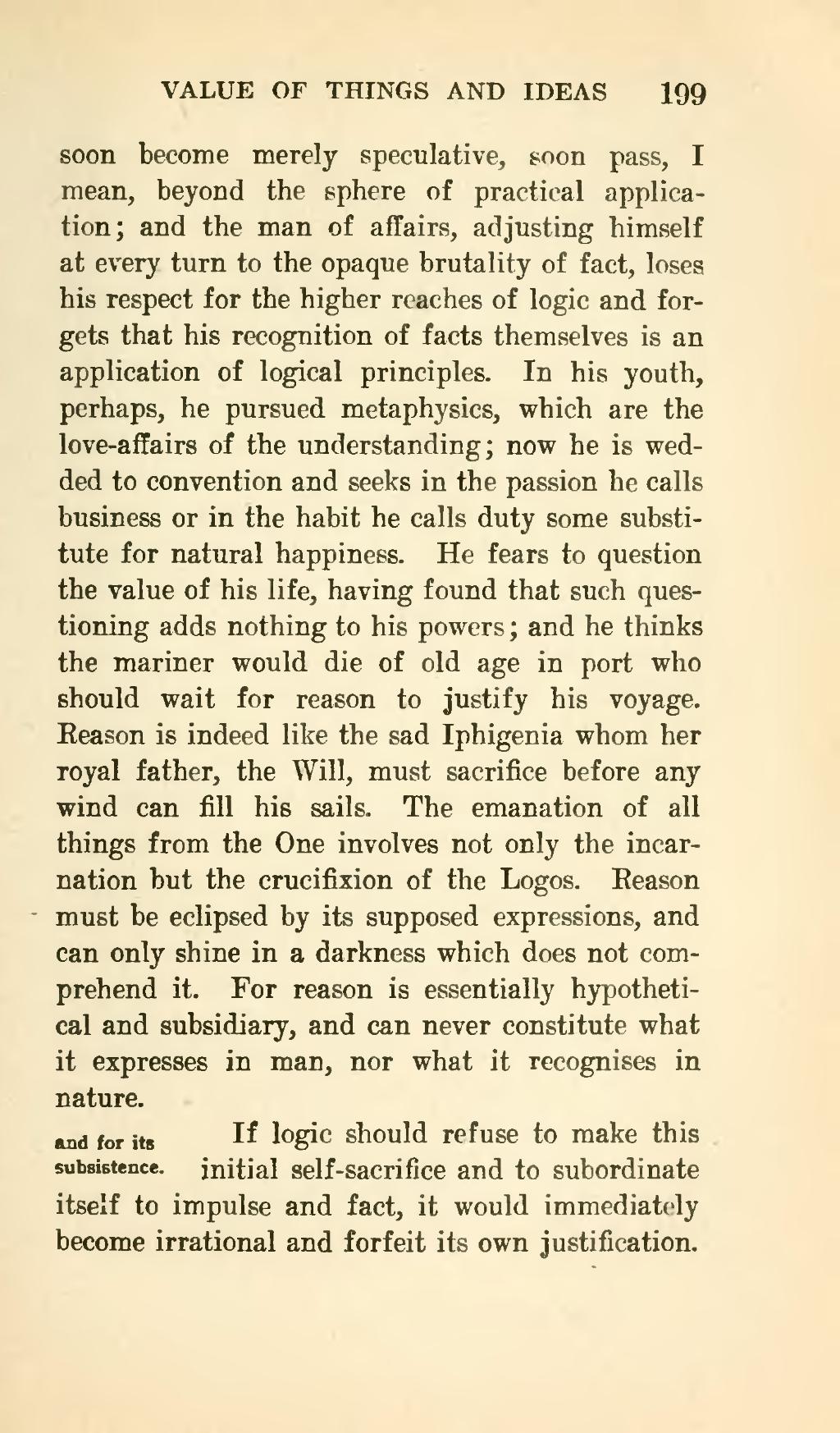soon become merely speculative, soon pass, I mean, beyond the sphere of practical application; and the man of affairs, adjusting himself at every turn to the opaque brutality of fact, loses his respect for the higher reaches of logic and forgets that his recognition of facts themselves is an application of logical principles. In his youth, perhaps, he pursued metaphysics, which are the love-affairs of the understanding; now he is wedded to convention and seeks in the passion he calls business or in the habit he calls duty some substitute for natural happiness. He fears to question the value of his life, having found that such questioning adds nothing to his powers; and he thinks the mariner would die of old age in port who should wait for reason to justify his voyage. Reason is indeed like the sad Iphigenia whom her royal father, the Will, must sacrifice before any wind can fill his sails. The emanation of all things from the One involves not only the incarnation but the crucifixion of the Logos. Reason must be eclipsed by its supposed expressions, and can only shine in a darkness which does not comprehend it. For reason is essentially hypothetical and subsidiary, and can never constitute what it expresses in man, nor what it recognises in nature.
If logic should refuse to make this initial self-sacrifice and to subordinate itself to impulse and fact, it would immediately become irrational and forfeit its own justification.
